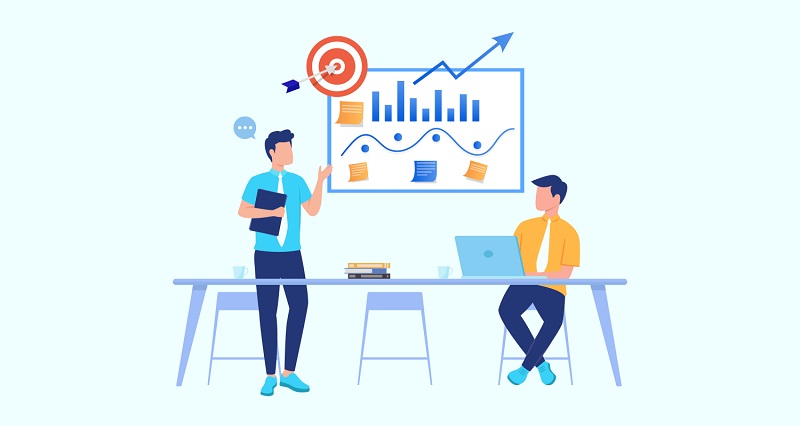10 Crucial Things to Look For in a New ERP System

It’s important to think carefully before choosing a new Enterprise Resource Planning (ERP) system for your company. While the incorrect decision might result in irritation and expensive setbacks, the proper ERP can simplify processes, boost efficiency, and promote growth. When assessing possible ERP systems, it’s critical to concentrate on crucial factors to make an educated decision.
1. Scalability and Flexibility
Think beyond the box while evaluating an ERP system. It’s critical to find an ERP that can grow with your company since it’s probable that your firm will change and develop. Your system must be scalable in order to manage more data, users, and processes without having to undergo an expensive redesign. To customize and configure the ERP to your unique processes and needs, look for flexibility in these areas. As your firm changes, this agility will enable you to streamline procedures and maintain your competitive edge.
2. Integration Capabilities
It is crucial that your new systems and software integrate well. Your CRM, inventory management, e-commerce platforms, and other crucial technologies should all work together effortlessly with your ERP. A comprehensive perspective of your operations is made possible through seamless integration, which improves data flow across your business and removes data silos. To make connection easier and reduce interruptions during deployment, make sure the ERP provides reliable APIs, pre-built connectors, or middleware solutions.
3. User-Friendly Interface
For staff adoption and productivity, a user-friendly interface is crucial. An ERP system with a simple, intuitive interface cuts down on training time and minimizes mistakes. To make sure that your staff can access and engage with the system effectively, look for features like role-based dashboards, customizable views, and responsive design. The objective is to enable your staff to efficiently use the features of the ERP.
4. Mobile Accessibility
The corporate environment of today demands mobility. Your ERP should provide mobile access so that your employees can continue to be productive while on the move. Look for a responsive design that adjusts to different operating systems and devices. Your total agility and responsiveness to consumer demands will increase because of mobile accessibility, which allows remote work, field sales, and real-time decision-making.
5. Data Security and Compliance
It is essential to safeguard confidential corporate information and adhere to applicable laws and regulations. Strong data security measures should be included in your ERP system, such as encryption, role-based access restrictions, and audit trails. It should also abide by relevant compliance standards, such as GDPR, HIPAA, or specifications for a particular industry. Make sure the ERP provider places a high priority on security and offers frequent upgrades and patches to meet new risks.
6. Reporting and Analytics
Making decisions based on data is essential to contemporary business. You should be able to do sophisticated reporting and analytics using an ERP system that fits your niche, such as a medical device ERP system. In order to track performance, see patterns, and make wise choices, look for solutions that provide real-time insights into your business’s operations. An ERP should include customizable dashboards, choices for data visualization, and the capacity to produce ad hoc reports.
7. Support and Training
Comprehensive training and assistance are required for a successful ERP deployment. Consider the vendor’s support options, such as the availability of a knowledge base, written materials, and helpful customer service. To ensure that your staff can fully use the capabilities of the system, training tools such as video tutorials, user manuals, and on-site training should be accessible. Analyze the vendor’s dedication to continuous assistance, such as software upgrades and upkeep.
8. Total Cost of Ownership (TCO)
An ERP system’s real cost is more complex to ascertain than just the cost of the first purchase. Take into account the total cost of ownership (TCO), which accounts for installation, customization, licensing, continuing maintenance, and possible growth expenses. To assist you in determining if the ERP will be affordable in the long run, a transparent provider should give you a detailed analysis of these costs. Determine the system’s return on investment (ROI) to see how fast your company will benefit from it.
9. Vendor Reputation and References
Select an ERP provider with a demonstrated track record of successful installations. Obtain references from current clients and inquire about their opinions of the provider and the ERP system. Take into account the vendor’s financial stability as well as its dedication to innovation and long-term growth. A trustworthy provider will be a trustworthy companion on your ERP journey.
10. Future-Proofing and Updates
Your ERP system has to stay up with the continuous changes in technology. Ask about the vendor’s plans for future upgrades and improvements. Make sure they are dedicated to keeping up with technological advancements and handling new business difficulties. To protect your investment, choose a provider that delivers frequent software upgrades and a detailed strategy for the long-term development of the ERP system.
Conclusion
Making the appropriate ERP system choice is a strategic choice that may have a big influence on your company’s performance. Scalability, integration, user-friendliness, mobile accessibility, data security, reporting, support, TCO, vendor reputation, and future-proofing are ten essential considerations that must be carefully considered in order to make an informed decision that is in line with your business objectives and ensures a successful ERP implementation. Never forget that an ERP system is a revolutionary instrument that can promote efficiency, innovation, and development across your business. It is not simply a software solution.